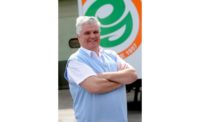What’s healthy eating? What’s the role of snacks and sweets? And who’s feeding the confusion over unhealthy eating?
These are some of the questions David H. Freedman, contributing editor, The Atlantic, and author of Wrong: Why Experts Keep Failing Us — And How to Know When Not to Trust Them, addressed during his speech at the Sweets and Snacks Expo.
Specifically, he focused on obesity, healthy eating, and the line between journalism and science.
It’s no secret that obesity is a real danger to the health of Americans today. An estimated 1 billion years of life have been collectively lost because of obesity, according to Freedman. Yet, he points out, there’s some confusion over what constitutes healthy eating.
The problem, Freedman argues, is, in part, where people go for their advice.
A lot of the articles in the media focused on healthy eating seem to hop from one extreme to another, according to Freedman.
For instance, the definition of healthy eating as defined by articles the average consumer reads may be: local, organic food with no additives, non-fat, and sugar-free.
Others claim that the only way to go is to eat basic foods, and remove all the advancements the food industry and scientific studies have made in processing food.
And yet, “all these health nuts... are eating it,” says Freedman. He explains that even in talking to the healthiest health gurus of all, his conversations about the Sweets and Snacks Expo inevitably end in, “Can you bring me back a Snicker’s bar?”
Freedman suggests that a healthy diet doesn’t need to cut out all processed foods, and there is room in everyone’s diet — including those who want to lose weight — for snacks and sweets.




